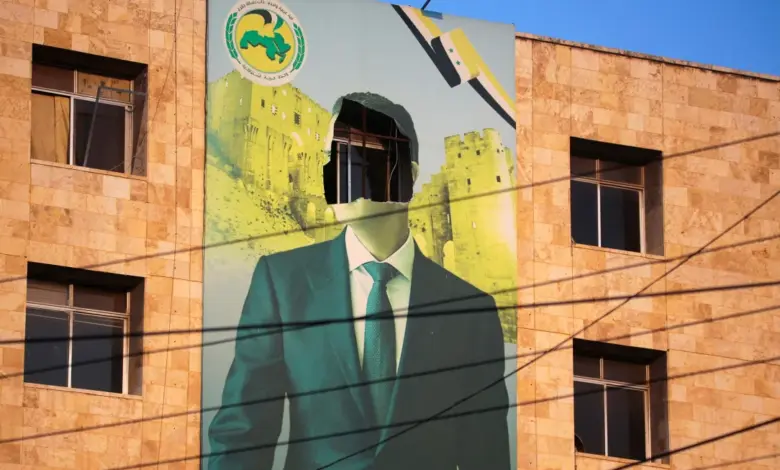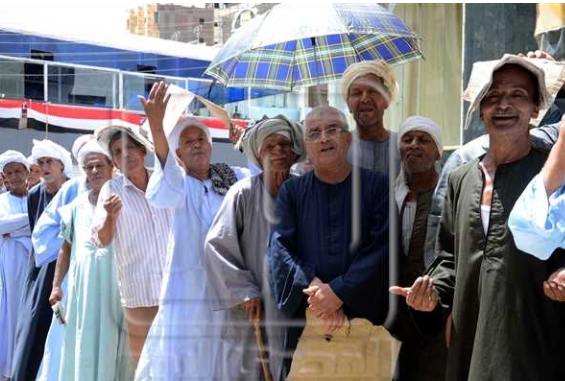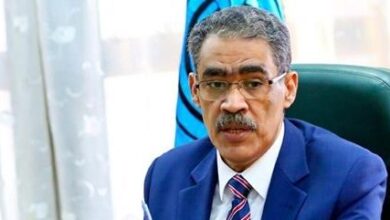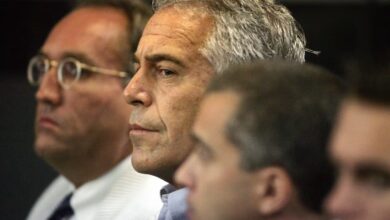
Whenever dramatic and bloody events unfold in an Arab nation, a corresponding chain of personal memories associated with that country are triggered.
How much more profound is this when the country in question is Syria, and the city is Damascus?
Both held a special place for our generation, who witnessed the establishment of the United Arab Republic, for which the name “Egypt” was abandoned, and it became known as the “Southern Region.”
At the time, there was no resistance to this arrangement.
The ideas of “Arabism,” “Arab nation,” “Arab homeland,” and “Arab unity” were all expressions of a grand dream that stretched from the Atlantic to the Persian Gulf. The project was linked to many songs and seemed like a natural course of events that had been altered by colonialism, imperialism, Zionism, and the Sykes-Picot Agreement and Balfour Declaration.
In any case, our generation had to mature after a series of difficult events that began with Syria’s separation from the United Arab Republic, leaving only Egypt. However, the name was not restored until a decade later under a different president, following a crushing defeat in June 1967 and the subsequent War of Attrition, before Egypt and Syria jointly fought and won the October 1973 War.
The 1980s passed, and in the 1990s, I visited Syria for the first time under strange circumstances during the final week of October 1991.
At the time, I was a political advisor at the Amiri Diwan in Qatar and on leave from the Al-Ahram Center for Strategic Studies. The Gulf War to liberate Kuwait had just erupted at the beginning of the year, and the geopolitical landscape of the Middle East had changed dramatically with Iraq’s defeat, Iran’s rise, and Israel’s gains, while the US was working to convene the Madrid Peace Conference.
As is customary in such situations, academics and researchers attended seminars and workshops to contemplate the future course of events.
Indeed, one such gathering took place in Moscow at a time when the Soviet Union was on the verge of collapse.
The details of this matter will be recounted at a later time, but the dilemma of traveling from Moscow to Cairo, and then to Doha, became insurmountable. In the end, I had to take a flight to Damascus to catch an EgyptAir flight to Cairo to correct my course.
To be honest, at that time I breathed a sigh of relief inside the Syrian Air plane, as I experienced a sense of civilizational uplift after my previous journey on Russian Aeroflot.
I arrived at Damascus Airport after midnight, only to find that EgyptAir had already departed, and I had to wait until the next day.
There was no one to talk to at the Damascus International Airport, and there were no signs of any other incoming flights. I eventually managed to find a friendly face, especially after he learned I was Egyptian.
He corrected the course directly to Doha and guided me to retrieve my luggage and then to a small hotel where I found similar kindness – however, this kindness ended the next day.
It had seemed strange to the Syrian authorities that an Egyptian carrying a journalist’s passport was working as a political advisor for the State of Qatar, while the profession registered on the passport was that of a journalist. It didn’t require a political investigation, but rather a trip to Damascus to obtain a permit from the Ministry of Information to enter Syria and another to exit.
Up until that moment, I still believed that ‘Sham’ referred to a vast geographical region in northeastern Egypt. After realizing my ignorance that ‘Sham’ actually means Damascus, where the Ministry of Information is located, which by the way, is not open on Fridays—the very day I arrived in Damascus due to unfortunate Russian timing—I understood.
The departure time for the Gulf Air flight to Doha was quickly approaching, and I couldn’t imagine what would happen to me in Assad’s Syria if I stayed.
However, perhaps due to some improvement in Egyptian-Syrian relations at that time, a colonel came to solve the problem and put me in line to board the plane. There were only four passengers left before me to leave ‘Sham,’ and then another officer asked me, “Do you have any foreign currency?”
At that time, it was natural for me to have Qatari Riyals, Egyptian Pounds, Russian Rubles, Syrian Pounds, and of course, US Dollars, as it was the global currency. Nevertheless, my knowledge of political science and the world would make such a bundle of currencies require a year of scrutiny to unravel and understand its sources for the officer, who began to take me out of the line.
But then a Gulf Air representative came and took him aside; after a seemingly friendly conversation from my perspective, I breathed a sigh of relief once I was on the plane and had left Syria’s airspace.
Author’s biography:
Abdel Moneim Said is currently a member of the Egyptian Senate and the chairman of the advisory committee for the Egyptian Council for Strategic Studies.
Previously, he served as the chairman of the board of directors for “Al Masry Al Youm” newspaper in Cairo, the “Al Ahram” newspaper, the Al Ahram Center for Strategic Studies, and the Regional Center for Strategic Studies.
He was a member of the Egyptian Shura Council. He also served as a political counselor to Qatar’s royal advisory council. He has also written for “Al Sharq al-Awsat” newspaper since 2004, as well as for Al Ahram and Al Masry Al Youm, among other Arab and international newspapers.
He is an academic at Egyptian universities and a visiting fellow at Brandeis University in the United States, alongside being the author of numerous books.
After earning a Bachelor’s degree from Cairo University in 1970, he pursued his graduate studies in the United States, obtaining both a Master’s and a Doctorate from Northern Illinois University in 1979 and 1982, respectively.




